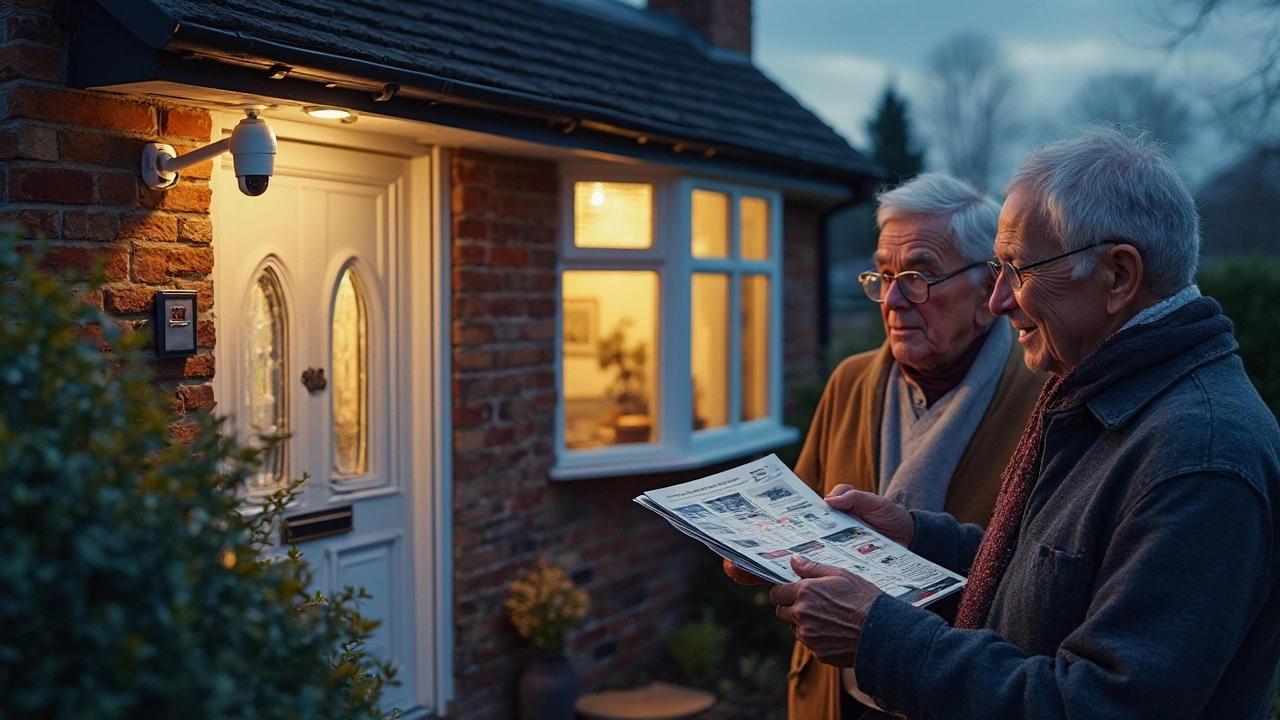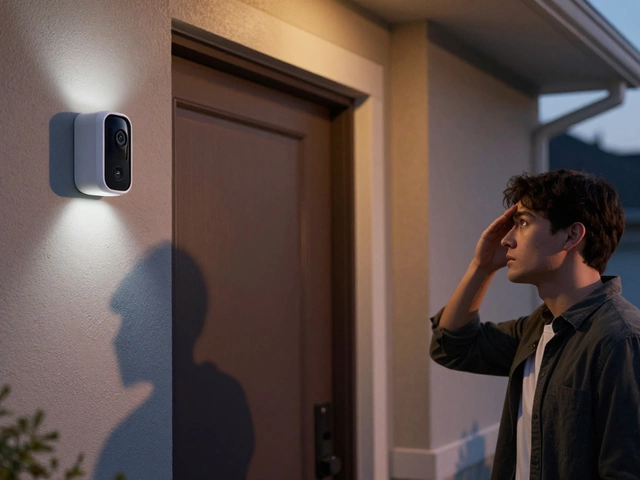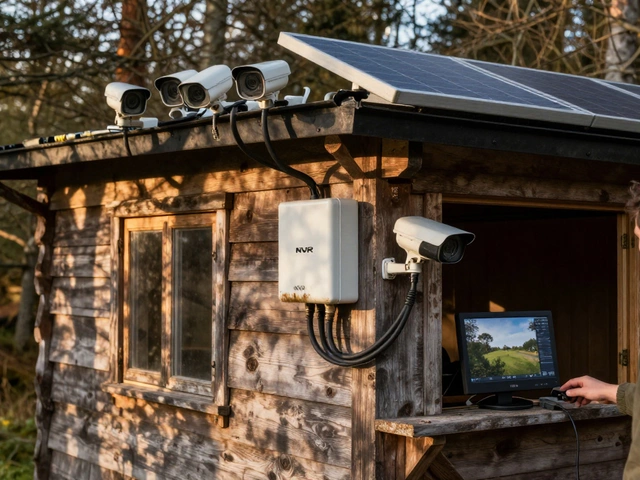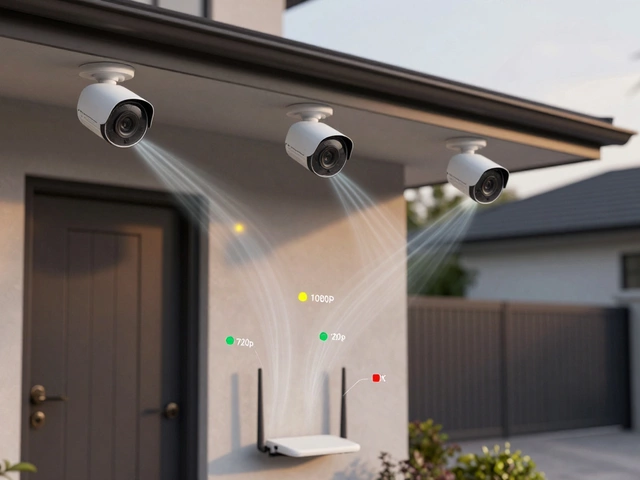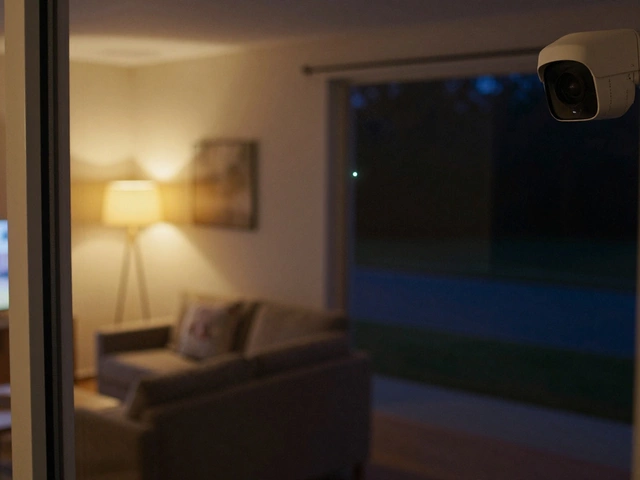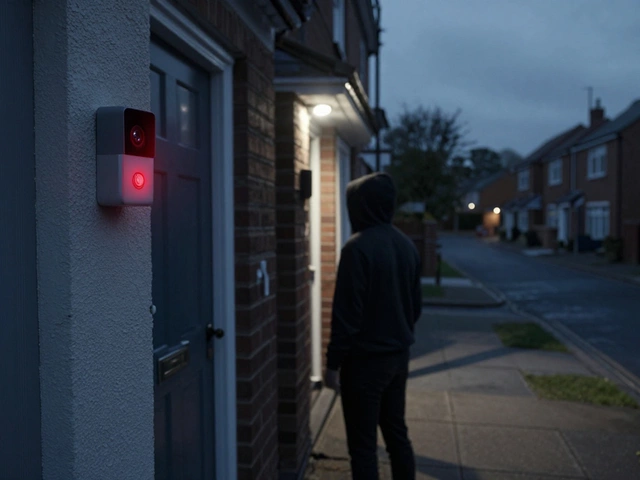Most people use 'CCTV' and 'CCTV camera' like they’re the same thing, but they aren’t. If you’re talking about home or business security (and especially thinking about installation costs), the difference matters a lot. CCTV stands for Closed-Circuit Television, which is the entire video surveillance system, not just the camera part.
Ever walked into a store and seen a few cameras on the ceiling? Those are the CCTV cameras. But the full CCTV system is more than just those little eyes watching you. There are cables, monitors, sometimes recording devices, and even an old-school-looking warning sticker that tries to scare off troublemakers. It’s like comparing having a smart TV remote to actually owning the TV, speakers, and everything else that makes a home theater. Knowing the difference can help you make way smarter choices when someone’s quoting you for installation.
- CCTV: What the Whole System Means
- CCTV Camera: Just One Piece of the Puzzle
- What This Means for Installation and Cost
- Tips for Choosing What’s Right for You
CCTV: What the Whole System Means
If someone says they want a CCTV installed, they’re actually talking about a whole setup, not just a couple of cameras stuck on the wall. The full CCTV system keeps an eye on things using cameras, but it also has the tech to store and show you the footage. Everything works together in a closed loop—hence the name "closed-circuit." Basically, only the people you choose can see what’s happening, unlike livestreams that get blasted all over the internet.
A standard CCTV system usually includes:
- Cameras (the eyes of the operation)
- Wiring (to connect everything or, sometimes, wireless options)
- A digital or network video recorder (DVR or NVR) to record and store footage
- Monitors to watch what’s happening in real-time or to review old footage
- Power supply and backup systems, so things don’t go dark when the lights do
Some setups have alarms that kick in when motion is detected, and others let you check the feed remotely from your phone or laptop. Here’s an at-a-glance breakdown of the basic pieces you’ll find in a typical CCTV system:
| Component | Job |
|---|---|
| Camera | Captures video (indoors or outdoors) |
| DVR/NVR | Records and stores footage |
| Monitor | Shows live or recorded video |
| Cables/Wireless | Connects the parts together |
| Power Supply | Keeps the system running |
Some CCTV systems even come loaded with smart features—like face recognition or alerts when something moves around the house at odd hours. But the bottom line is this: CCTV isn’t just cameras; it’s the entire security setup working together. If you skip some pieces, you lose functions. So, when figuring out installation cost, it helps to know if you’re buying a full kit or just a single camera.
CCTV Camera: Just One Piece of the Puzzle
A CCTV camera is just the part that captures the video. Think of it like a set of eyes on your property, but eyes alone can’t make you see or remember anything—they need a brain, and that’s where the rest of the system comes in.
There are a ton of cameras out there: dome, bullet, PTZ (pan-tilt-zoom), outdoor, indoor, even those fake dummy cameras that just blink a red light to scare off lazy crooks. Each type is built for specific jobs. Want the camera to blend in? Dome style is your friend. Need to keep an eye on a gate from across the yard? Go with a zoom or bullet camera.
Here’s where people mix things up: you might hear someone say, “Install CCTV,” and think they just need a camera or two. In reality, a camera alone doesn’t do much unless it’s hooked up to something that actually records or displays the footage. It’s like getting a microphone with no speakers or computer—there’s just no way to hear anything. This confusion could mean you end up missing key equipment in your quote or paying for more than you really need.
- Resolution makes a big difference. You can grab basic CCTV cameras with 720p, but most homes and shops are jumping to 1080p or even 4K for sharp images that help you actually see faces or license plates.
- Some cameras come with night vision or motion sensors. This stuff might add a bit to your cost up front, but if you want proof during a break-in at 2 AM, it’s worth it.
- Outdoor cameras need to be weather-ready. Check the IP (Ingress Protection) rating for dust and water resistance—look for IP66 or higher if rain is a thing where you live.
Take a look at this quick comparison of common CCTV camera features:
| Camera Type | Best Use | Resolution | Average Price (UK, 2024) |
|---|---|---|---|
| Dome | Shop interiors | 1080p-4K | £30-£100 |
| Bullet | Outdoor gates | 1080p-4K | £40-£120 |
| PTZ | Large yards/car parks | 1080p-4K | £120-£350 |
| Pinhole/Hidden | Discreet surveillance | 720p-1080p | £50-£200 |
So yes, a CCTV camera is the key eyeball, but if you stop there, you’ll just have fancy hardware hanging around with no way to prove what happened when it matters.
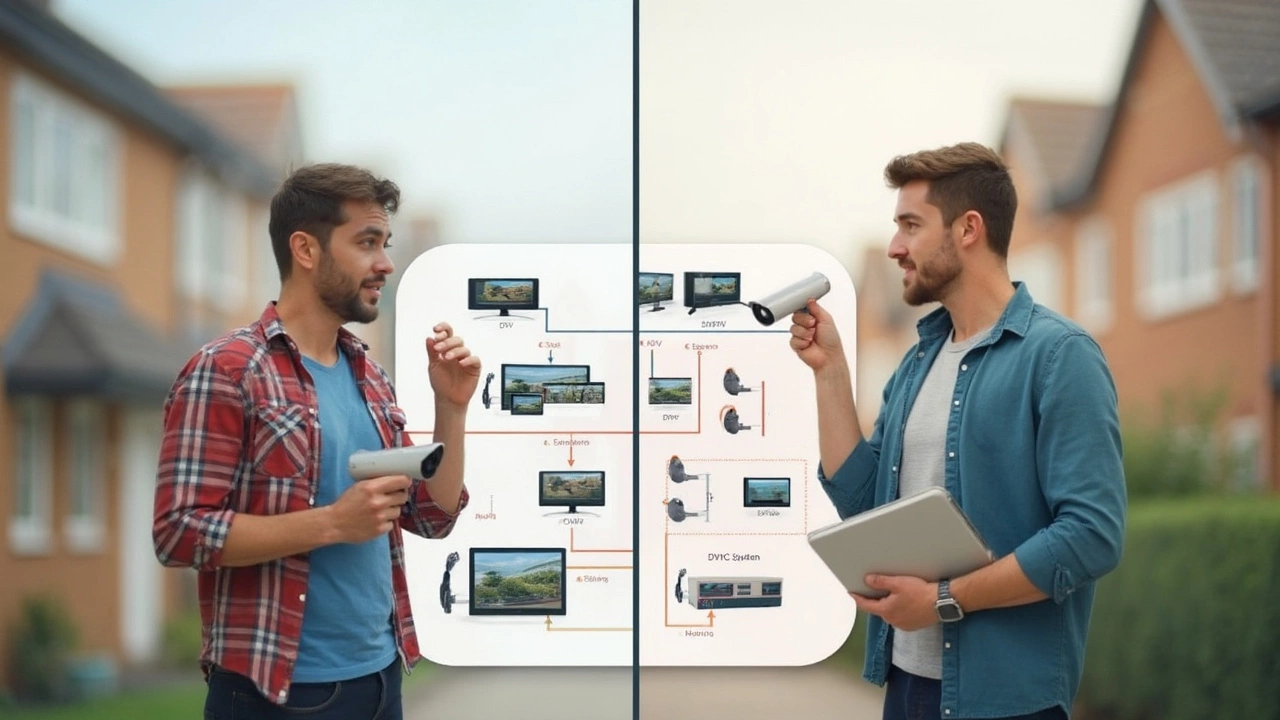
What This Means for Installation and Cost
It’s easy to think you’re just paying for a CCTV camera, but there’s a lot more riding on your wallet than that little device on the wall. The full CCTV setup comes with cameras, DVRs or NVRs (those are the gadgets that record and store the footage), tons of cable, power supplies, and sometimes even a monitor. So, if you ask for a CCTV system quote and get a price that’s way higher than you expected, this is why.
Let’s break it down: cameras on their own cost anywhere from £20 to £150 each, depending on their features. But a full 4-camera system with recording can set you back between £350 and £800 (installed). And if you want something really high-tech—think remote viewing on your phone or 4K resolution—the price tags get even heavier.
| Item | Low Price (£) | High Price (£) |
|---|---|---|
| Single Camera (basic) | 20 | 60 |
| Single Camera (HD/night vision) | 40 | 150 |
| Full 4-Camera System (installed) | 350 | 800 |
| 8-Camera Commercial System | 800 | 2,300 |
Installation cost also depends on your building. A bungalow is way easier and cheaper than a three-floor detached house, just because getting cables everywhere is less tricky. If walls need drilling, or you want cameras outside in awkward places, expect the cost to rise.
Here’s some real-life advice: don’t buy just ‘cameras’ if what you need is a complete security system. And if you get a cheap install quote, double-check what’s included. Sometimes it’s just the cameras and you still need to pay extra for recording or remote access. Experts always say to look at the whole package. As security consultant Andy Wall put it:
“When you plan CCTV, you’re not really just buying hardware, you’re buying a system that gives you peace of mind. Make sure you’re not skimping on the things that actually matter, like storage and playback options.”
If you’re on a budget or want to start small, ask your installer whether you can add more cameras later. Some modern systems are totally plug-and-play, which means you don’t have to rip up your house if you decide Rex (my dog) needs 24/7 coverage of his favorite nap spot.
Tips for Choosing What’s Right for You
If you’re stuck between buying a full CCTV setup or just slapping on a single camera, here’s what actually matters. First, ask yourself what you’re hoping to catch. Is it your front door, your driveway, or your entire backyard? More coverage means you’ll need more than one camera and a system to connect them all. If you only care about a single spot, a standalone camera might do the trick—and it’ll cost less.
Before you jump in, look at these must-knows:
- Think in zones, not just rooms. Burglars don’t care about your favorite wall, they look for weak spots like back doors or detached garages.
- Wired vs Wireless: Wired systems are more reliable but cost more to install. Wireless ones are easier to set up and move, but they can drop out if your Wi-Fi stinks.
- Local or cloud recording? Cloud storage is easy to access from anywhere, but you’ll pay monthly. Local storage means no fees, but if a thief grabs your recorder, the footage is gone.
- Resolution matters: 1080p is the bare minimum for recognizing faces or license plates. Cheaper cameras may not be much help if something bad actually happens.
- Night vision and weatherproofing: If your camera can’t handle rain or dark, it’s pretty much just decoration.
Got a budget? Here’s what you’re likely looking at for installation cost in the UK (ballpark figures)
| System Type | No. of Cameras | Average Cost |
|---|---|---|
| Standalone Wi-Fi Camera | 1 | £60 - £180 (self-install) |
| Basic Wired CCTV System | 2 | £300 - £500 (professional install) |
| Multi-Camera System (HD) | 4 | £700 - £1500 |
| Top Tier (With Remote Monitoring) | 8+ | £2000+ |
One last tip: Don’t ignore the price of extras. Extra-long cables, cloud storage subscriptions, or even signage (that legal warning sticker) all add up. And always check if your insurance company has minimum security requirements—you might score a discount just for ticking their boxes.
At home, I keep it simple: the main entry points get wired cameras. For the shed and backyard, Rex doesn’t miss much, but having an extra eye with motion alerts means I don’t have to run outside every time he barks at a squirrel.

